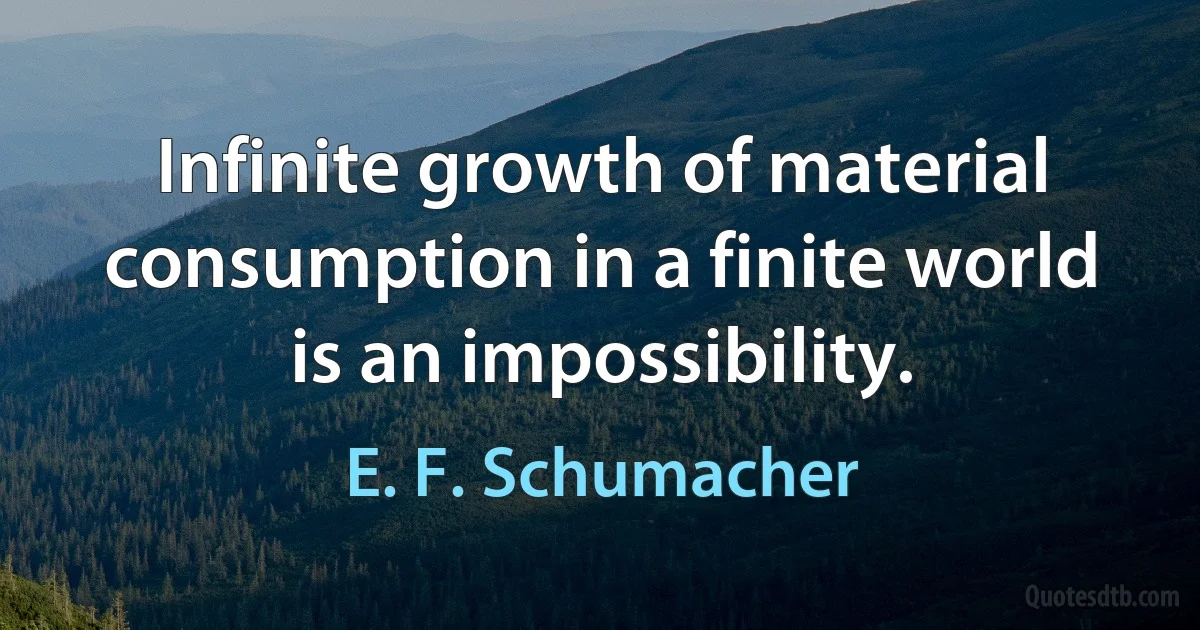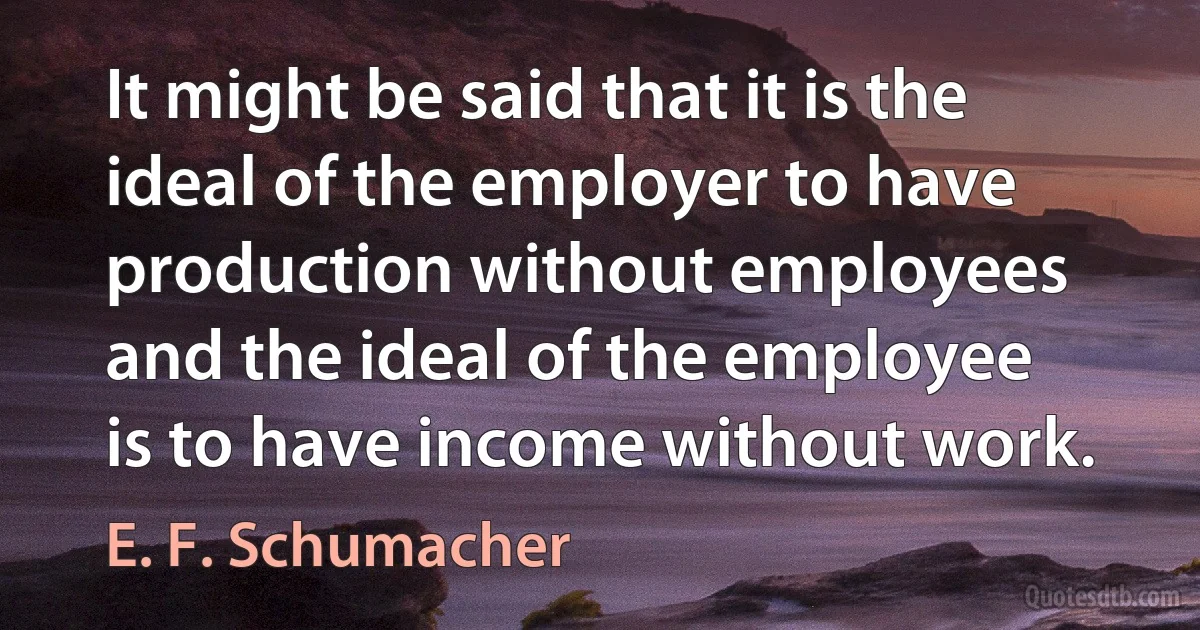E. F. Schumacher quotes
From a Buddhist point of view, this is standing the truth on its head by considering goods as more important than people and consumption as more important than creative activity. It means shifting the emphasis from the worker to the product of work, that is, from the human to the sub-human, surrender to the forces of evil.

E. F. Schumacher
That soul-destroying, meaningless, mechanical, moronic work is an insult to human nature which must necessarily and inevitably produce either escapism or aggression, and that no amount of 'bread and circuses' can compensate for the damage done-these are facts which are neither denied nor acknowledged but are met with an unbreakable conspiracy of silence-because to deny them would be too obviously absurd and to acknowledge them would condemn the central preoccupation of modern society as a crime against humanity.

E. F. Schumacher
To organize work in such a manner that it becomes meaningless, boring, stultifying, or nerve-racking for the worker would be little short of criminal; it would indicate a greater concern with goods than with people, an evil lack of compassion and a soul-destroying degree of attachment to the most primitive side of this worldly existence.

E. F. Schumacher
From the point of view of the employer, it is in any case simply an item of cost, to be reduced to a minimum if it cannot be eliminated altogether, say, by automation. From the point of view of the workman, it is a 'disutility'; to work is to make a sacrifice of one's leisure and comfort, and wages are a kind of compensation for the sacrifice.

E. F. Schumacher
The modern economist ... is used to measuring the "standard of living” by the amount of annual consumption, assuming all the time that a man who consumes more is "better off” than a man who consumes less. A Buddhist economist would consider this approach excessively irrational: since consumption is merely a means to human well-being, the aim should be to obtain the maximum of well-being with the minimum of consumption.

E. F. Schumacher
The cultivation and expansion of needs is the antithesis of wisdom. It is also the antithesis of freedom and peace. Every increase of needs tends to increase one's dependence on outside forces over which one cannot have control, and therefore increases existential fear. Only by a reduction of needs can one promote a genuine reduction in those tensions which are the ultimate causes of strife and war.

E. F. Schumacher
The Buddhist view, "takes the function of work to be at least threefold”: "to give a man a chance to utilize and develop his faculties; to enable him to overcome his egocentredness by joining with other people in a common task; and to bring forth the goods and services needed for a becoming existence.”.

E. F. Schumacher
Education can help us only if it produces " whole men”. The truly educated man is not a man who knows a bit of everything, not even the man who knows all the details of all subjects (if such a thing were possible): the " whole man” in fact, may have little detailed knowledge of facts and theories, he may treasure the Encyclopæ dia Britannica because " she knows and he needn' t”, but he will be truly in touch with the centre. He will not be in doubt about his basic convictions, about his view on the meaning and purpose of his life. He may not be able to explain these matters in words, but the conduct of his life will show a certain sureness of touch which stems from this inner clarity.

E. F. Schumacher
The ownership and the consumption of goods is a means to an end, and Buddhist economics is the systematic study of how to attain given ends with the minimum means. Modern economics, on the other hand, considers consumption to be the sole end and purpose of all economic activity, taking the factors of production-labour and capital-as the means. The former, in short, tries to maximise human satisfactions by the optimal pattern of consumption, while the latter tries to maximise consumption by the optimal pattern of productive effort.

E. F. Schumacher
Few can contemplate without a sense of exhilaration the splendid achievements of practical energy and technical skill, which, from the latter part of the seventeenth century, were transforming the face of material civilization, and of which England was the daring, if not too scrupulous, pioneer.

E. F. Schumacher



